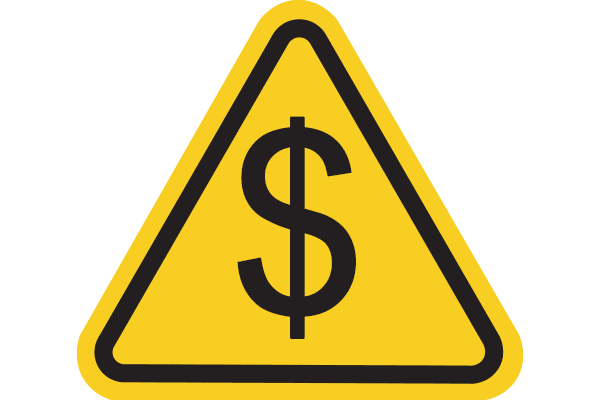“You deserve hazard pay for that job!”
All of us probably have either said that or someone said it to us, and it’s almost always a tongue-in-cheek expression of sympathy for a particularly difficult or unpleasant assignment. No actual bump in pay ever comes from those expressions.
However, for untold thousands – or even millions – of American workers, hazard pay may become a reality because of COVID-19.
As Congress considers more financial aid for coronavirus, $3 trillion stimulus package known as the HEROES Act, one provision is providing hazard pay to workers whose occupations have put them on the front lines of the coronavirus pandemic that has killed more than 100,000 Americans. The projected price tag of the COVID-19 hazard pay is $200 billion.
Don’t run to your mailbox or check your bank account to see of a windfall has been deposited just yet. The HEROES Act was passed in the Democratic-controlled House of Representatives; the Republican-controlled Senate strongly opposes much in the 1,815-page bill, more than 90% of which involves other spending. But hazard pay for COVID-19 essential workers has support on both sides of the partisan aisle, so any bill that gets through Congress has a good chance of including hazard pay.
What Is Hazard Pay?
Hazard pay recognizes that some jobs expose workers to a greater risk of injury or death. For examples, refinery workers called in to stop a leak of deadly chemicals might be paid at a higher rate than they would during normal operations. Employers might give hazard pay to those whose jobs involve great discomfort, such as working in temperature extremes, particularly if protective measures don’t completely eliminate the risk or hardship.
No law requires employers to offer hazard pay, although some companies have done so for employees who have worked through the COVID-19 outbreak. Typically, it’s a benefit that unions negotiate with employers, though non-union workers also might receive it.
Who Would Qualify for Hazard Pay?
Scanning the section of the bill that covers “essential workers” raises a different question: Who wouldn’t?
We jest, but only a little.
The original bill specifically mentions hazard pay for home health workers and those working directly to prevent the spread COVID-19 among the homeless. However, it also describes “pandemic premium pay” for essential work as being done by employees in the following categories and industries:
- First responders
- Health care (includes pharmacies, medical testing, public health, social services and others)
- Groceries
- Restaurants
- Food production
- Transportation (a broad category that includes drivers, airplane mechanics and dock workers)
- Warehouses
- Cleaning and maintenance
- Waste disposal
- News media
- Government employees deemed essential
- Education
- Laundry
- Elections
- Hazardous materials
- Disinfecting services
- Clinical research for COVID-19
- Mortuary services
- Physical therapy
- Dentistry
- U.S. Postal Service
- Lodging facilities used for COVID-19 containment and mitigation
The Department of Homeland Security suggested the following other essential areas of commerce in an April 17 memo: energy, communication and information technology, critical manufacturing, financial services, chemical, defense industrial base, commercial facilities, residential/shelter facilities and services and hygiene products and services.
With so many broad categories, millions of workers might be eligible for COVID-19 hazard pay.
How many millions? Did we mention this bill is 1,815 pages long?
Definition of an Essential Worker
The original bill defined the term as any individual who does essential work either as an employee or independent contractor. It also states that such work does not include teleworking from home but involves regular, in-person interaction with patients, the general public or with co-workers who perform such work, or by regularly physically handling items handled by patients, the public or co-workers who do that.
HEROES Act Hazard Pay Amount
The original bill said that an essential work employer shall pay each of its essential workers $13 for each hour of work performed from Jan. 27, 2020 until 60 days after the last day of the COVID-19 public health emergency. The maximum payment for workers who make under $200,000 per year would be $10,000; for employees who are more highly paid, the maximum would be $5,000.
Again, don’t start spending that money right away. Several major items from the original bill were removed before the House of Representatives passed it on May 15, including monthly stimulus to all adults, and the high price tag and the sheer scope of the legislation may be more than Senate Republicans can stomach.
Sources:
- Allen, T. (2020, May 13) $200 Billion In Hazard Pay: These Essential Workers Must Get Their Fair Share. Retrieved from https://www.forbes.com/sites/terinaallen/2020/05/13/200-billion-in-hazard-pay-these-essential-workers-must-get-their-fair-share/#b4d7ac526b6f
- Doyle, A. (2020, May 21) What is Hazard Pay and When do Employees Receive It? Retrieved from https://www.thebalancecareers.com/what-is-hazard-pay-2062002
- Kim, M.K. (2020, May 1) Romney calls for hazard pay for workers on the front line of the pandemic. Retrieved from https://www.washingtonpost.com/politics/romney-calls-for-hazard-pay-for-workers-on-the-front-line-of-the-pandemic/2020/05/01/837e7f60-8bc9-11ea-9759-6d20ba0f2c0e_story.html
- N.A. (2020, May 12) HEROES Act text. Retrieved from http://cdn.cnn.com/cnn/2020/images/05/12/democrats_coronavirusbill_4.pdf
- Ziv, S. (2020, May 16) HEROES Act Passes House; Omits $2,000 Recurring Stimulus Checks And Other Notable Items. Retrieved from https://www.forbes.com/sites/shaharziv/2020/05/16/heroes-act-passes-house-omits-2000-recurring-stimulus-checks-and-other-notable-items/#5eb42821120a








